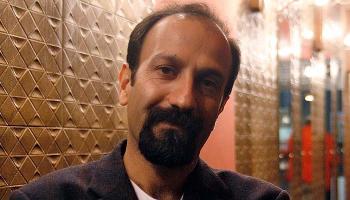ASGHAR FARHADI
BREADCRUMBHOME
LATEST
ASGHAR FARHADI
IRAN’S ACCLAIMED DIRECTOR
BY
QUENTIN TURNOUR
 Asghar Farhadi
Asghar FarhadiIranian cinema art has had a major place in the international film festival scene for over a quarter of a century, led by the breakthrough successes of filmmakers like Dariush Mehrjui in the 1970s, then Mohsen Makhmalbaf and Abbas Kiarostami in the ’80s and ’90s.
This notoriety has raised awareness of the great Persian cinema tradition behind this new wave – probably the oldest and strongest in the Middle East (its only equal that of Egypt).
Yet Iranian cinema has still struggled to find western commercial success; to get beyond narrow film festival, critical and academic attention. It has also struggled to break free of Iran’s internal and geo-political polarities, following the 1979 Islamic revolution. Films that are box-office hits at home rarely travel, even to western film festivals. Films and filmmakers celebrated at western film festivals are often (with some political calculation) isolated from mainstream Iranian audiences – or punished, as the recent house arrest of Jafar Panahi and the long-term exile of the Makhmalbaf family attests.
The consensus of success achieved by the films of Asghar Farhadi (1971-) seems to break through these partitions of reception. Major international film festival prizes have been followed by strong art-house bo office in the west – but this has merely been to capitalise on broad success already achieved at home. Western film journalists tend to assume that acclaim beyond Iran must equal defiance and censorship at home. But Farhadi’s films have won strong box-office returns (in at least Tehran and other major Iranian cities), good reviews in the mainstream press and multiple prizes at the local film industry’s major awards. It’s another reminder of hidden social and political nuances we often miss when generalising about Iran’s contemporary filmmaking and film culture.
Farhadi’s Best Foreign Film Oscar-winner A Separation has been the only one of his films to be widely seen in Australia so far (fortunately, as Australia was a source of some of the film’s pre-production funding, through the Asia Pacific Screen Awards). So our audiences here have some catching up to do. Not unreasonably; Farhadi emerged quickly, finding his local and international success with five features made since 2003, after training with the Iranian Young Cinema Society – so often the breeding ground for the Iranian new wave.
The centrepiece of our survey will be a limited release of the Berlin Film Festival Best Director winner, 2009’s About Elly – almost unseen in Australia. We will also bring to Canberra audiences two largely unseen earlier films, 2004’s Beautiful City and 2006’s Fireworks Wednesday.
All three films give an indication of the consistency of Farhadi’s interest in the ‘double life’ of the Iranian middle-classes: a private lifestyle and worldview which is typically liberal, westernised and internationalised; and a public position squeezed within the confides of contemporary Iran’s jostling of social, cultural, geo-political and theocratic forces. Once seen, Australian audiences will more readily understand why Farhadi’s films have been both hits abroad and in their home markets. They speak directly to the same, largely urban Iranian audiences whose stories they often tell, and relevantly to their deep frustrations with an official order with which they are so at odds, and which is to them often intransigent.
None the less Farhadi’s films also remind us that matters in contemporary Iran are just too complex to assume that this social divide is by any means always one of a specific ‘reformist’ political opposition to the Iranian regime, or of an indication of a Islamic-secular divide, or of support for ‘the west’. In part, they indicate this complexity by being (paradoxically) so universal. Their middle-class dramas could easily be those of the social, cultural and political frustrations of urban liberal middle classes anywhere – including maybe even those of the US (caught as its middle classes are in their own local ‘culture wars’). It’s another reminder that Iran is not really the inexplicably foreign and hostile country it is so often depicted to be.
IRAN
IRANIAN FILM
DIRECTORS
No comments:
Post a Comment